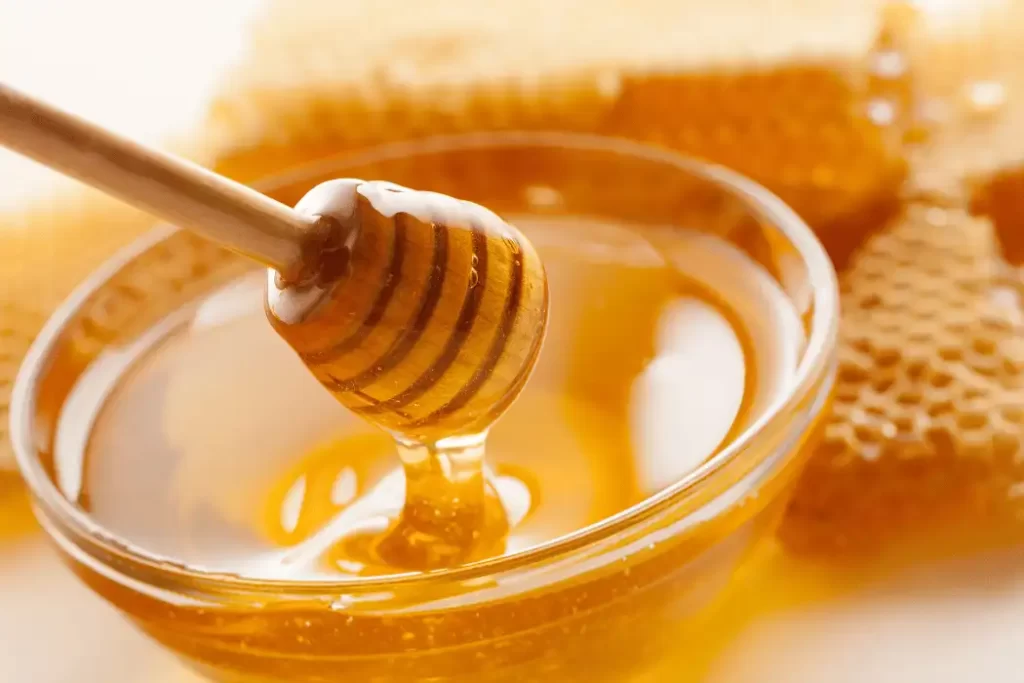Honey has been a cherished natural sweetener with a legacy spanning centuries, offering potential health benefits that have captivated the human palate. However, amidst its goodness lies a perplexing concern: for some, the consumption of this golden elixir can trigger unpleasant reactions. This quandary gives rise to the burning question: is honey allergy a mere myth or a concrete reality? In this comprehensive article, we embark on a journey through the scientific realm of honey allergies, peeling back the layers to understand the symptoms, causes, and effective management strategies. For those seeking total health and fitness, it is vital to discern the truth about honey allergies and their impact on overall well-being. So, let’s delve deep into the fascinating world of honey and its potential effects on our bodies.
What is Honey Allergy?
Honey allergy is an adverse immune response triggered by proteins found in honey. The primary culprit is often the pollen present in the honey, which can cause the body’s immune system to identify it as a threat and produce antibodies, leading to allergic reactions. While it is relatively rare, it is essential to understand its manifestations to differentiate it from other adverse reactions to honey.
Common Symptoms of Honey Allergy
When someone with a honey allergy consumes honey, they may experience a range of symptoms. These can vary from mild to severe and may include:
Itchy or Swollen Throat:
Allergic reactions can cause irritation and swelling in the throat, leading to discomfort.
Skin Rash:
Hives, redness, and itching on the skin are common symptoms of a honey allergy.
Nasal Congestion:
Allergens in honey can trigger nasal congestion and a runny nose in susceptible individuals.
Gastrointestinal Distress:
Some may experience stomach pain, cramps, or diarrhea after consuming honey.
Anaphylaxis:
In severe cases, honey allergies can lead to anaphylaxis, a life-threatening reaction that requires immediate medical attention.
The Link Between Honey Allergy and Pollen Allergy
Honeybees collect nectar from various flowers, and in the process, they carry pollen grains on their bodies. These pollen can end up in the honey, creating a connection between honey allergy and pollen allergy. For individuals with pollen allergies, consuming honey can trigger cross-reactivity, leading to allergic symptoms.

Honey Allergy vs. Honey Intolerance
It is crucial to distinguish between honey allergy and honey intolerance. While allergies involve the immune system, intolerance does not. Honey intolerance may result from the inability to digest certain components of honey, leading to digestive discomfort. Allergy symptoms tend to be more systemic and involve the immune response.
Can Babies Have Honey?
Honey is not recommended for infants under one year old due to the risk of infant botulism. Infant botulism can occur if spores of the Clostridium botulinum bacteria, often found in honey, grow and produce toxins in a baby’s immature digestive system. As a precaution, parents should avoid giving honey to babies until they reach the age of one.
Diagnosis of Honey Allergy
If you suspect you have a honey allergy, seeking a proper diagnosis is essential. An allergist can perform various tests, such as skin prick tests or blood tests, to determine if you are allergic to honey or its components.
Managing Honey Allergies
If diagnosed with a honey allergy, there are several ways to manage and minimize the risk of allergic reactions. These include:
Avoidance: The most effective way to manage honey allergies is to avoid consuming honey or honey-containing products.
Read Labels: Always read food labels carefully to check for honey or honey-derived ingredients.
Inform Others: Inform friends, family, and restaurant staff about your allergy to avoid accidental exposure.
Home Remedies for Mild Reactions
For individuals with mild honey allergy symptoms, some home remedies may provide relief. These include drinking plenty of water, using a cold compress to reduce skin irritation, and taking over-the-counter antihistamines to alleviate allergic reactions.
Honey Allergy Myths and Misconceptions
There are several myths and misconceptions surrounding honey allergies. One common myth is that raw honey is hypoallergenic, but it can still contain pollen allergens. It is essential to be aware of these myths to make informed decisions regarding honey consumption.
Is Manuka Honey Safe for Allergy Sufferers?
Manuka honey has gained popularity for its potential health benefits, but it is not necessarily safe for everyone. People with honey allergies, especially those sensitive to pollen, should exercise caution when consuming Manuka honey.
Importance of Reading Labels
When dealing with honey allergies, reading product labels becomes crucial. Honey can be an unexpected ingredient in various foods, beverages, and even cosmetic products. Staying vigilant and reading labels can prevent inadvertent exposure.
Cross-Reactivity with Other Allergens
Individuals with honey allergies may also experience cross-reactivity with other allergens. Birch pollen, for example, has proteins similar to those in honey, and people with birch pollen allergies may react to honey as well.
Potential Side Effects of Honey Allergy
While most allergic reactions to honey are mild, some individuals may experience severe symptoms like anaphylaxis. Understanding the potential side effects of honey allergy is essential to take necessary precautions.
Conclusion
In conclusion, honey allergy is not a myth; it is a real condition that can cause discomfort and, in severe cases, pose significant health risks. For those with honey allergies, it is crucial to avoid honey consumption and products containing honey. Reading labels diligently and staying informed about honey allergy management can help individuals lead safer, healthier lives.


















Comments 0